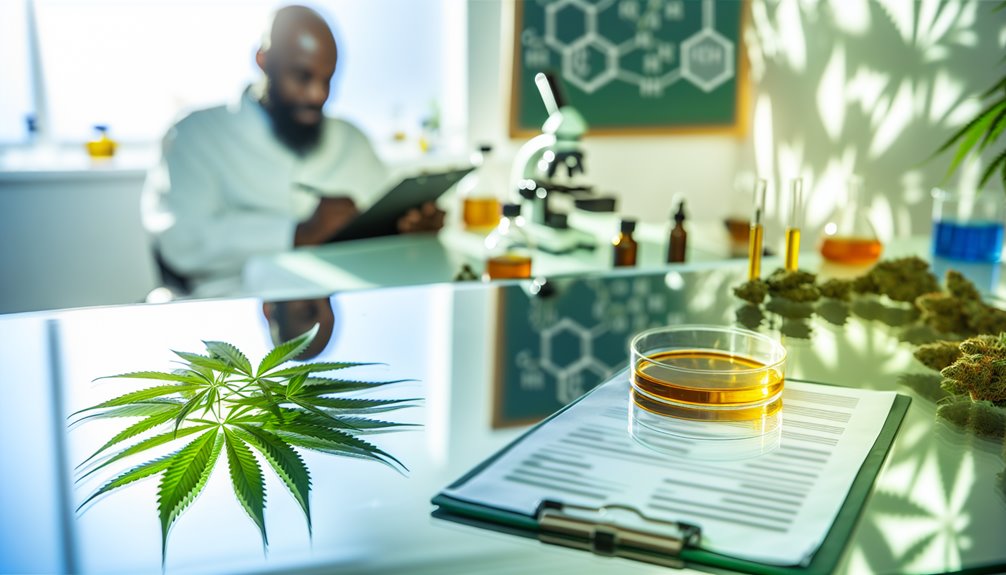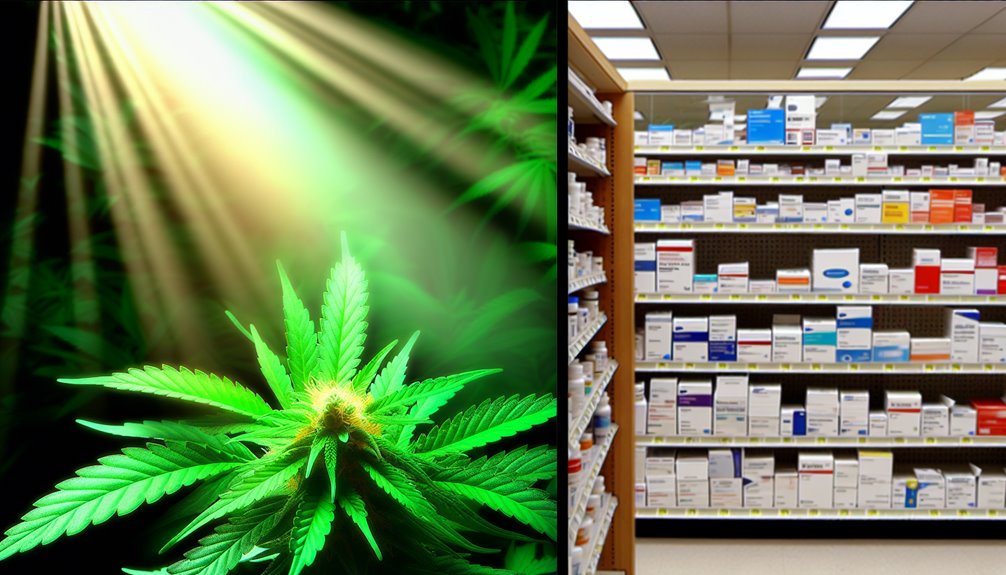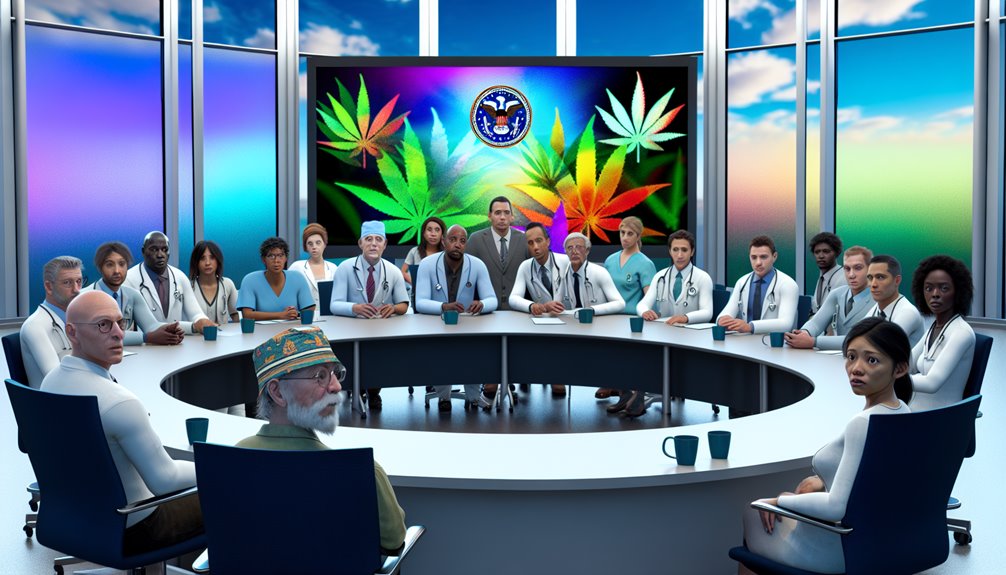Did you know the FDA has approved a major study exploring cannabis as a treatment for PTSD? This Phase 2 clinical trial, dubbed MJP2, will pit high-THC cannabis flower against a placebo, with a focus on veterans. Funded by a hefty grant, the aim is to discover if cannabis can alleviate PTSD symptoms. This investigation could help to validate alternative treatments for this condition. Why not join us as we explore the details, potential risks, benefits, and implications of this groundbreaking study?
Background: Understanding PTSD and Its Impact

Post-Traumatic Stress Disorder (PTSD) is a formidable mental health condition that can strike anyone who has encountered a shocking, terrifying, or hazardous event. It's not just soldiers; anyone can develop PTSD after a traumatic event. This disorder can greatly impact your day-to-day life, influencing relationships and routines. Symptoms vary but often include flashbacks, avoidance of triggers, negative thoughts, and hyper-reactivity. PTSD can also lead to other health issues such as depression, anxiety, and physical symptoms. Despite these challenges, trauma recovery is possible, and building emotional resilience is an essential part of this process. Approximately 5% of the U.S. population experiences PTSD yearly, highlighting the importance of understanding and addressing this impactful disorder. If symptoms persist for over a month following the traumatic event, this might be a clear indication of PTSD that should not be ignored. Persisting symptoms can be a key diagnostic tool for healthcare professionals.
Current Treatment Strategies for PTSD
While you may not be aware, numerous treatment strategies are currently in place to address PTSD. Psychotherapy approaches such as Cognitive Behavioral Therapy, Cognitive Processing Therapy, and Prolonged Exposure Therapy are recommended for patients. These therapies work by teaching individuals to gradually approach trauma-related memories and challenge unhelpful beliefs related to their trauma. On the other hand, medication options like Sertraline, Paroxetine, Fluoxetine, and Venlafaxine may also be used, although they're generally less effective and have more side effects compared to psychotherapy. However, the treatment success varies greatly among individuals, justifying the need for more diverse research in this area. Treatment success is an important factor in the recovery process from PTSD. It's important to consult with mental health professionals for a tailored treatment plan. These professionals can help establish clear treatment goals and monitor progress, ensuring the safest and most effective approach to managing PTSD.
The Role of Cannabis in Medical Research

Unbeknownst to many, cannabis plays an increasingly significant role in medical research, particularly in the quest to understand and address PTSD. You'll find it's not just about alleviating symptoms, but improving quality of life. For instance, studies focus on the therapeutic applications of cannabinoids like THC and CBD, examining different delivery methods, dosages, and formulations. Cannabis research also investigates potential side effects and the long-term efficacy of treatments. Significant strides have been made, with the FDA approving trials studying cannabis' effectiveness in treating PTSD. This wouldn't be possible without collaborations, grants, and non-profit involvement. While the journey is ongoing, the future of cannabis in medical research holds promise.
Understanding the FDA Approval Process
Before a drug gets to your local pharmacy, it undergoes a rigorous approval process led by the Food and Drug Administration (FDA). It starts with discovery and preclinical research in laboratories and on animals to evaluate safety and drug efficacy. If successful, it moves to the clinical trial phases, each examining different aspects, such as ideal dosage, on human subjects. This can take several years due to extensive data collection. Once complete, a New Drug Application is submitted to the FDA for review. If approved based on the drug's safety, efficacy, and quality, it's then subject to post-market monitoring for further safety and efficacy data. This guarantees the drug remains beneficial over time.
Details of the FDA-Approved Cannabis Study

Diving into the specifics, the FDA-approved cannabis study, named MJP2, is a Phase 2 clinical trial slated to enroll 320 veterans diagnosed with moderate to severe PTSD. The study's intent is to evaluate the inhalation of high-THC cannabis flower against a placebo, reflecting real-world cannabis dosage patterns. These brave veterans will be recruited from various states, including Michigan, Arizona, and Florida. They'll be trained to self-regulate their daily cannabis dosage, a process that will be evaluated through an app on their smartphones. Funded by a $12.9 million grant from the Michigan Veteran Marijuana Research Grant Program, this study aims to enhance our understanding of cannabis's role in veteran health, specifically in treating PTSD symptoms.
Potential Risks and Benefits of Cannabis in PTSD Treatment
While cannabis use in treating PTSD has shown promising results, it's vital to take into account both its potential benefits and risks. Research indicates cannabis efficacy in reducing PTSD symptoms like anxiety, insomnia, and recurrent nightmares. It also appears to offer relief from chronic pain often linked with PTSD. However, you must also weigh these benefits against dependency risks and possible side effects, such as increased heart rate or impaired short-term memory. Some individuals may also experience exacerbated symptoms. It's imperative to discuss these factors with your healthcare provider to guarantee the best treatment. Remember, cannabis use is still federally illegal and its legal status varies by region, potentially impacting its use in your personal and professional life.
Comparing Cannabis to Traditional PTSD Treatments

In evaluating the landscape of PTSD treatments, it's important to compare the potential benefits of cannabis use to those of traditional therapies. Traditional treatments like Prolonged Exposure (PE), Cognitive Processing Therapy (CPT), and Eye Movement Desensitization and Reprocessing (EMDR) are backed by strong evidence, showing marked improvements in PTSD management. However, recent studies reveal promising results for cannabis efficacy in treating PTSD. Cannabis users reported significant reductions in symptom severity, with some no longer meeting diagnostic criteria. While these results are encouraging, more large-scale studies are needed to fully explore cannabis as a viable alternative or complement to traditional treatments. This is an important step forward, seeking to broaden our understanding and improve therapeutic options for PTSD.
Future Implications for PTSD Treatment
Looking ahead, the future implications for PTSD treatment are beginning to take shape. FDA's approval of the cannabis study paves the way for potential therapeutic innovations, bolstering the ongoing efforts in PTSD treatment.
- Cannabis Regulation: With its growing acceptance, clarifications in cannabis regulation can lead to wider access for PTSD patients. It's necessary to continue the dialogue around its benefits and potential risks.
- Integration with Digital Tools: Digital therapeutics, when coupled with traditional treatments, can help monitor patients' progress and guarantee consistent engagement.
- Pharmaceutical Combinations: Exploring combinations of cannabis with other evidence-based therapies could enhance treatment benefits.
- Accessibility: Reducing prejudice against cannabis use, especially in veterans with PTSD, can guarantee more individuals receive the help they need.
You're part of this promising future. Let's innovate for better PTSD treatments.
Public and Medical Community Response to the Study

Though the medical community harbors reservations, the approval of the cannabis study for PTSD has sparked diverse responses. While some doctors are hesitant due to potential research challenges, others see the necessity of robust studies to provide credible data on cannabis efficacy. Veteran organizations, particularly the VFW, support the research, reflecting public attitudes that advocate for alternative PTSD treatments. Despite the APA's opposition, public perception is evolving favorably towards cannabis use. However, the FDA's initial reluctance to approve the study highlights the ongoing regulatory hurdles. Still, this approval signals a shift in regulatory attitudes and paves the way for future research, ultimately serving those suffering from PTSD.
Conclusion
You're standing at the crossroads of PTSD treatment, with cannabis now being studied as a potential path. Yet, it's important to remember "there's no such thing as a free lunch." While cannabis may offer relief, potential risks shouldn't be overlooked. As the FDA-approved study unfolds, stay informed, ask questions, and weigh every piece of evidence. After all, it's the breadth of knowledge, not the speed of discovery, that'll usher in a new era for PTSD treatment.
If you're curious to learn more about how cannabis could fit into your journey, I invite you to visit Fells Point Cannabis Docs of Maryland. Our friendly team is here to help you navigate the options available to you. Feel free to call us at (410) 401-4200 — we're excited to share information and support you in exploring this potential avenue for relief!
